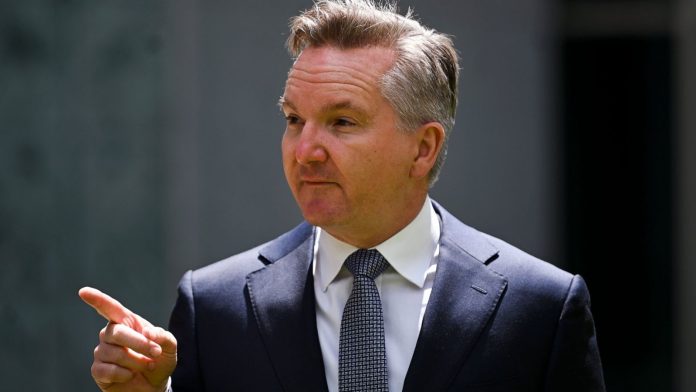Australia would bid to host a United Nations climate change summit in partnership with other Pacific nations if Labor won next month’s federal election as part of the federal opposition’s bid to improve the nation’s credentials with the region on the issue.
The annual Conference of the Parties – known as COP – has brought together the world’s nations for deliberations for almost three decades, taking climate from a fringe issue to a global priority, including in 1995 for the Kyoto Protocol and in 2015 for the Paris Accord.
The event is poised to take on greater significance in coming years as the world grapples with holding global warming to 1.5 degrees by 2030 while balancing major geo-strategic issues such as Europe’s reliance on Russian oil and gas and the efforts of global powerhouses China and India to decarbonise their growing economies.
Opposition climate and energy spokesman Chris Bowen said if Labor wins the federal election then bidding to host a COP would “send a clear message that Australia is under new management”.
“Seeking to host COP with those Pacific partners who wish to co-host it with us will be an excellent opportunity to remind the world about the issues at stake and enable our Pacific brothers and sisters to make their case to the world in a most direct way,” he told The Sydney Morning Herald and The Age.
The federal government – which committed Australia to a net zero emissions target by 2050 at COP26 in Glasgow – has faced growing criticism from Pacific nations such as Fiji, Tuvalu and Samoa in recent years for not lifting its climate targets or moving to phase out coal-fired power stations at a quicker rate.
Opposition Leader Anthony Albanese blamed Australia’s lack of action on climate change for Solomon Islands’ decision to sign a security pact with China. However, Defence Minister Peter Dutton said the claims were “completely without foundation” and “not the reality”.
Climate scientists warn that rising sea levels are already having a major impact on society, economies and ecosystems in Pacific Islands. It also increases vulnerability to tropical cyclones, storm surges and coastal flooding.
Maina Talia, the secretary of the Tuvalu Climate Action Network, said the survival of his homeland of three reef islands and six atolls, halfway between Australia and Hawaii, depended on the world’s willingness to end its addiction to fossil fuels.
“It is also imperative that rich, polluting countries like Australia significantly increase financial assistance to help us adapt to the impacts of climate change that are already here,” he said.
“However, adaptation will only take us so far. Unless the world acts urgently to cut down emissions, there will come a point, not so far into the future, where adaptation is no longer possible. And then, what will become of my people and my culture?”
Australia has formally committed to a reduction in greenhouse gas emissions of 26-28 per cent by 2030 on 2005 levels under the Paris agreement, but the government says it is on track for a cut of 34 per cent on current settings.
While Labor has set a target for cuts of at least 43 percent in the same timeframe, a new report released by the Intergovernmental Panel on Climate Change this week said the world needed a 45 percent reduction in emissions by the end of the decade and is on track for a 14 percent increase.
The next COP – in 2023 – will be hosted by the United Arab Emirates, which has committed to transition its own energy supplies to net zero by 2050 by embracing solar and nuclear. But the resources-rich nation will also continue to expand production of its oil and gas fields, which are among the world’s largest.
Labor has not put a timeline on when it would like to host COP and it would be subject to negotiation with other countries.
SOURCE: SMH/PACNEWS














